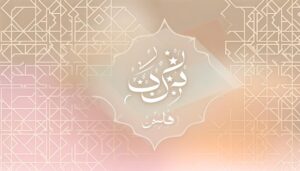Aisha Name Meaning in Islam
The name Aisha holds profound significance in Islam, symbolizing life, strength, and wisdom. It is derived from the Arabic word ‘aysh,' meaning ‘living' or ‘life.' Aisha bint Abi Bakr, the beloved wife of Prophet Muhammad, is a prominent historical figure known for her intelligence and contributions to Islamic scholarship, particularly in the compilation of hadiths.
Her legacy continues to inspire, embodying divine feminine energy, faith, and resilience. Aisha remains a popular name among Muslim parents, honoring heritage and values deeply rooted in Islamic tradition.
For a deeper understanding of her impact and legacy, more insights await.

Key Takeaways
- Aisha means 'living' or 'life' in Arabic, symbolizing vibrancy and vitality.
- Aisha bint Abi Bakr was a beloved wife of Prophet Muhammad and a prominent figure in Islamic history.
- She significantly contributed to the compilation of hadiths and Islamic jurisprudence.
- The name Aisha embodies wisdom, strength, faith, and devotion within Islamic culture.
- Aisha is a popular name among Muslim parents, reflecting respect for heritage and Islamic values.
Historical Origins
The historical origins of the name Aisha in Islam are deeply rooted in the early days of the Islamic faith. Most importantly, the name is associated with Aisha bint Abi Bakr, one of the Prophet Muhammad's wives. Aisha played a significant role in the early Muslim community, known for her intelligence, scholarship, and active participation in various aspects of Islamic life.
She contributed extensively to the compilation of hadiths, providing invaluable insights into the Prophet's life and teachings. Her influence extended beyond her lifetime, as she became a pivotal figure in Islamic jurisprudence and history. The name Aisha, as a result, carries profound historical significance, embodying qualities of wisdom, strength, and devotion within the Islamic tradition.
Linguistic Roots
Rooted in the Arabic language, the name Aisha derives from the word 'ʿaysh,' which translates to 'living' or 'life.' This etymological origin reflects the essence of cruciality and existence, making the name deeply meaningful in its linguistic context.
Aisha is a feminine given name commonly used in various Muslim cultures, symbolizing vibrancy and vigor. Its pronunciation, typically 'A-ee-sha,' is phonetically consistent across different dialects of Arabic, which aids in its widespread recognition and usage.
The name's linguistic simplicity and profound meaning contribute to its enduring popularity. Understanding the linguistic roots of Aisha enriches the appreciation of the name beyond its immediate cultural and historical associations, offering a glimpse into its fundamental significance.
Religious Significance
Aisha's religious significance in Islam is profound, as she was the beloved wife of the Prophet Muhammad and a pivotal figure in early Islamic history. Known for her intelligence, piety, and strong will, Aisha made substantial contributions to the transmission of Hadith, the sayings and actions of the Prophet. Her firsthand accounts are invaluable to Islamic jurisprudence and theology.
Additionally, her role in significant historical events, such as the Battle of the Camel, underscores her influence. Aisha's scholarly legacy is revered, with many considering her a model of virtue and knowledge. Her life and contributions continue to inspire and educate Muslims worldwide, solidifying her esteemed position in Islamic tradition and history.
Aisha Bint Abi Bakr
Aisha Bint Abi Bakr, one of the most prominent figures in Islamic history, played a critical role in the early development of the Muslim community. Her early life as the daughter of Abu Bakr, the first Caliph, and her marriage to Prophet Muhammad positioned her uniquely within the Islamic tradition.
Aisha's substantial contributions to religious scholarship and her active involvement in historical events underscore her enduring influence in Islam.
Early Life Overview
Born into a prominent family in Mecca, Aisha bint Abi Bakr was the daughter of Abu Bakr, one of the closest companions of the Prophet Muhammad and the first caliph of Islam. Her early life was shaped by the strong Islamic faith and values upheld by her family. Educated and intelligent, Aisha demonstrated exceptional memory and understanding from a young age.
Her upbringing in a household deeply involved in the early Muslim community provided her with unique insights and experiences. Aisha's marriage to the Prophet Muhammad further solidified her role within the Islamic tradition, allowing her to become a significant figure in the transmission of Hadith and Islamic teachings, contributing to her lasting legacy in Islamic history.
Important Historical Role
Renowned for her profound knowledge and wisdom, Aisha bint Abi Bakr played a pivotal role in shaping Islamic jurisprudence and the preservation of Hadith. As one of the Prophet Muhammad's (PBUH) wives, her insights and experiences provided invaluable contributions to early Islamic thought.
Aisha's close proximity to the Prophet allowed her to witness and document numerous aspects of his life, making her a central figure in the transmission of his sayings and actions. Her intellect and eloquence earned her the respect of scholars and companions alike.
Additionally, her involvement in political matters, such as the Battle of the Camel, demonstrated her influence and commitment to the Muslim community, solidifying her legacy as a key historical figure in Islam.
Religious Contributions
Through her extensive involvement in the compilation and teaching of Hadith, the religious contributions of Aisha bint Abi Bakr have had a lasting impact on Islamic scholarship.
As one of the Prophet Muhammad's closest companions, she narrated over 2,000 Hadiths, providing invaluable insights into Islamic jurisprudence and daily life. Her deep understanding of Quranic verses and prophetic traditions made her a sought-after source of knowledge among scholars and students.
Aisha's scholarly rigor and commitment to preserving the teachings of Islam have guaranteed that her contributions remain foundational in the fields of Hadith studies and Islamic theology. Her legacy continues to inspire and guide Muslims in their pursuit of religious knowledge and spiritual growth.
Spiritual Symbolism
The name Aisha holds profound spiritual symbolism in Islam, embodying elements of divine feminine energy, faith, and devotion. It signifies a life of prosperity and spiritual richness, reflecting the virtues of its notable historical bearer, Aisha Bint Abi Bakr. The name Aisha is also associated with wisdom and knowledge, as Aisha Bint Abi Bakr was known for her intelligence and scholarly pursuits. In addition, in the context of Islamic teachings, the name Aisha represents the importance of compassion and kindness. When exploring the adnan name meaning, it becomes evident that names in Islamic tradition hold significant spiritual and cultural significance.
This name continues to inspire and represent core Islamic values, fostering a deep sense of reverence and respect.
Divine Feminine Energy
Aisha, a name steeped in rich spiritual symbolism, embodies the divine feminine energy that holds a profound significance in Islamic traditions. This divine energy is often associated with qualities of compassion, nurturing, and wisdom, reflecting the attributes of many revered female figures in Islam. Aisha, the wife of Prophet Muhammad, is a paramount example of this divine feminine energy, embodying strength, intellect, and piety.
| Aspect | Symbolism | Relevance |
|---|---|---|
| Compassion | Nurturing and Care | Emulates maternal roles |
| Wisdom | Intellectual Insight | Reflects knowledge and understanding |
| Strength | Resilience and Fortitude | Represents enduring faith and devotion |
These aspects collectively illustrate the profound layers of spiritual and cultural significance encapsulated in the name Aisha.
Faith and Devotion
Faith and devotion are central to the spiritual symbolism associated with the name Aisha, reflecting a deep commitment to Islamic principles and practices.
The name Aisha, meaning 'alive' or 'living,' symbolizes a vibrant faith and unwavering dedication to God.
This name is profoundly linked to Aisha bint Abi Bakr, a revered figure in Islamic history known for her piety, scholarly contributions, and close relationship with the Prophet Muhammad.
Her life exemplifies steadfast faith, intellectual prowess, and spiritual devotion, serving as an enduring inspiration for many Muslim women.
The name Aisha embodies a spiritual legacy that encourages adherence to Islamic tenets, fostering an environment where faith and devotion are deeply intertwined with daily life and personal identity.
Life and Prosperity
In Islamic tradition, the name Aisha is synonymous with life and prosperity, symbolizing not only physical well-being but also spiritual abundance and growth.
The name Aisha, derived from the Arabic root meaning 'alive' or 'living,' encapsulates a holistic sense of vitality. This encompasses health, happiness, and a flourishing existence that extends beyond material wealth.
Spiritually, Aisha represents a life filled with purpose, moral integrity, and devotion to God. Historical figures like Aisha bint Abu Bakr, the wife of Prophet Muhammad, exemplify these qualities, embodying wisdom, resilience, and piety.
Therefore, the name Aisha serves as an enduring symbol of a life that is not merely sustained but enriched through spiritual insight and ethical living.
Cultural Impact
The name Aisha holds significant cultural resonance within Islamic societies, often embodying ideals of strength, piety, and historical importance. Named after Aisha bint Abu Bakr, the beloved wife of the Prophet Muhammad, it carries deep historical and spiritual connotations.
Aisha's scholarly contributions and leadership are celebrated, reflecting her role in disseminating Hadiths and Islamic jurisprudence. Her name is often associated with intellectual rigor, moral integrity, and unwavering faith.
In various Islamic cultures, naming a child Aisha is a tribute to these virtues, symbolizing a connection to an esteemed heritage. Through literature, religious teachings, and community traditions, Aisha remains a name that inspires and perpetuates a legacy of empowering female figures in Islam.
Modern Popularity
Frequently celebrated for its rich historical and spiritual significance, the name Aisha continues to enjoy widespread popularity in modern Islamic communities. Its enduring appeal can be attributed to its roots in Islamic tradition, as it was borne by Aisha bint Abu Bakr, a revered figure and the wife of Prophet Muhammad.
Today, Aisha remains a common choice for Muslim parents worldwide, reflecting a deep respect for its heritage and the values it symbolizes. Additionally, the name's pleasant phonetic qualities and its meaning—'alive' or 'living'—enhance its attractiveness.
Aisha's modern-day prevalence underscores a collective cultural reverence, bridging past and present within the fabric of Islamic society.
Inspirational Legacy
Aisha bint Abu Bakr's inspirational legacy is deeply woven into the fabric of Islamic history, serving as a beacon of wisdom, resilience, and piety.
As the wife of Prophet Muhammad (PBUH) and a revered scholar, Aisha played an essential role in the early Islamic community. Her extensive knowledge of hadiths and Islamic jurisprudence has left an indelible mark on Islamic scholarship.
Her leadership during the Battle of the Camel and her dedication to education exemplify her formidable character. Aisha's life continues to inspire Muslim women and men alike, emphasizing the importance of knowledge, moral integrity, and active participation in societal affairs.
Her legacy endures as a guiding light for those seeking to embody the principles of Islam.
Conclusion
To sum up, the name Aisha holds profound historical, linguistic, and religious significance within Islam. Its rich heritage, stemming from Aisha Bint Abi Bakr, imbues it with spiritual symbolism and cultural impact that endures to this day.
As the adage goes, 'A name is a garment that one never removes,' and Aisha's modern popularity and inspirational legacy attest to its timeless relevance and reverence within the Muslim world.






